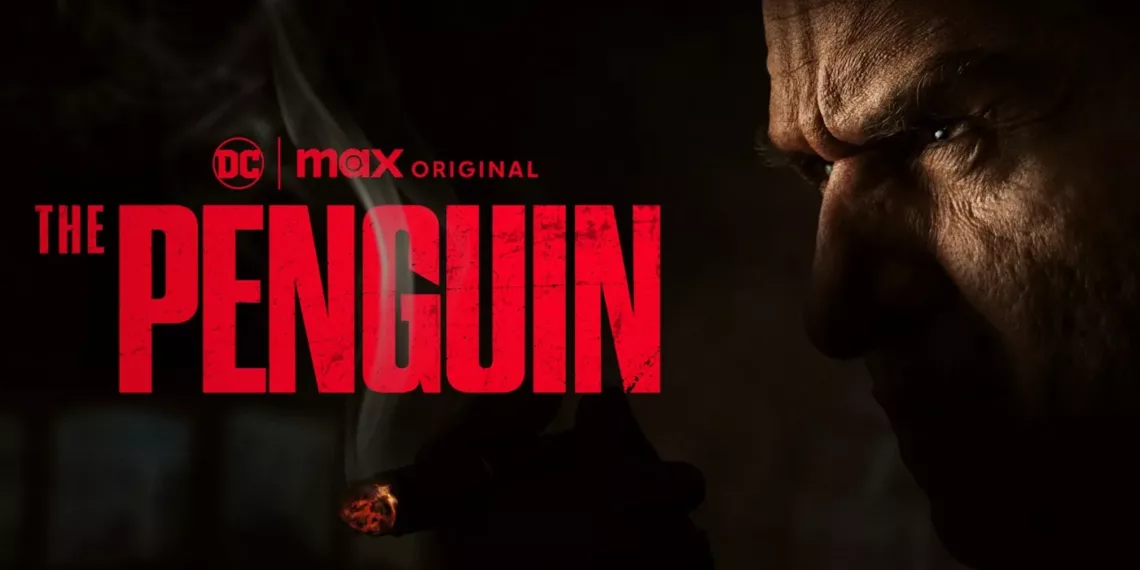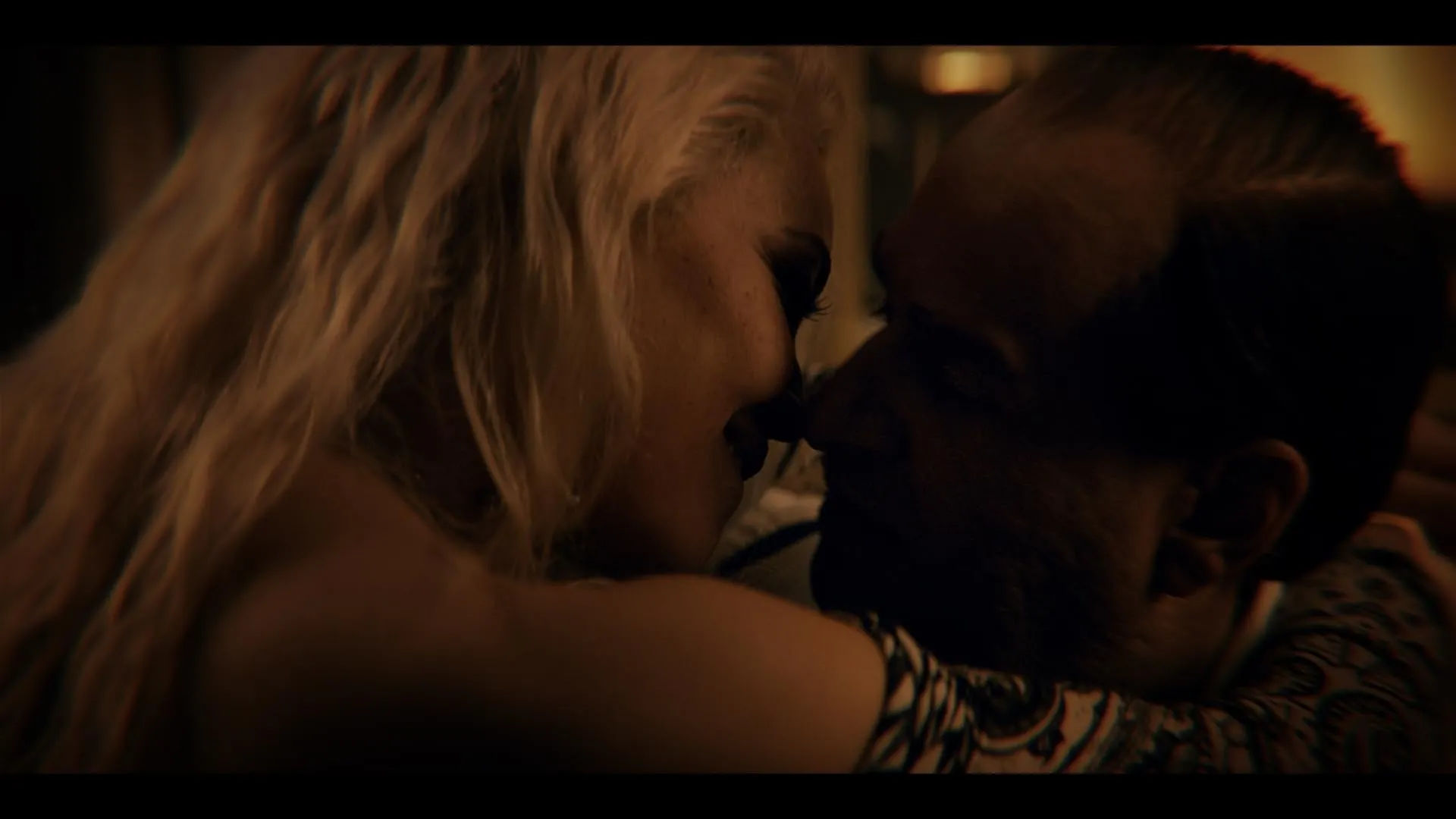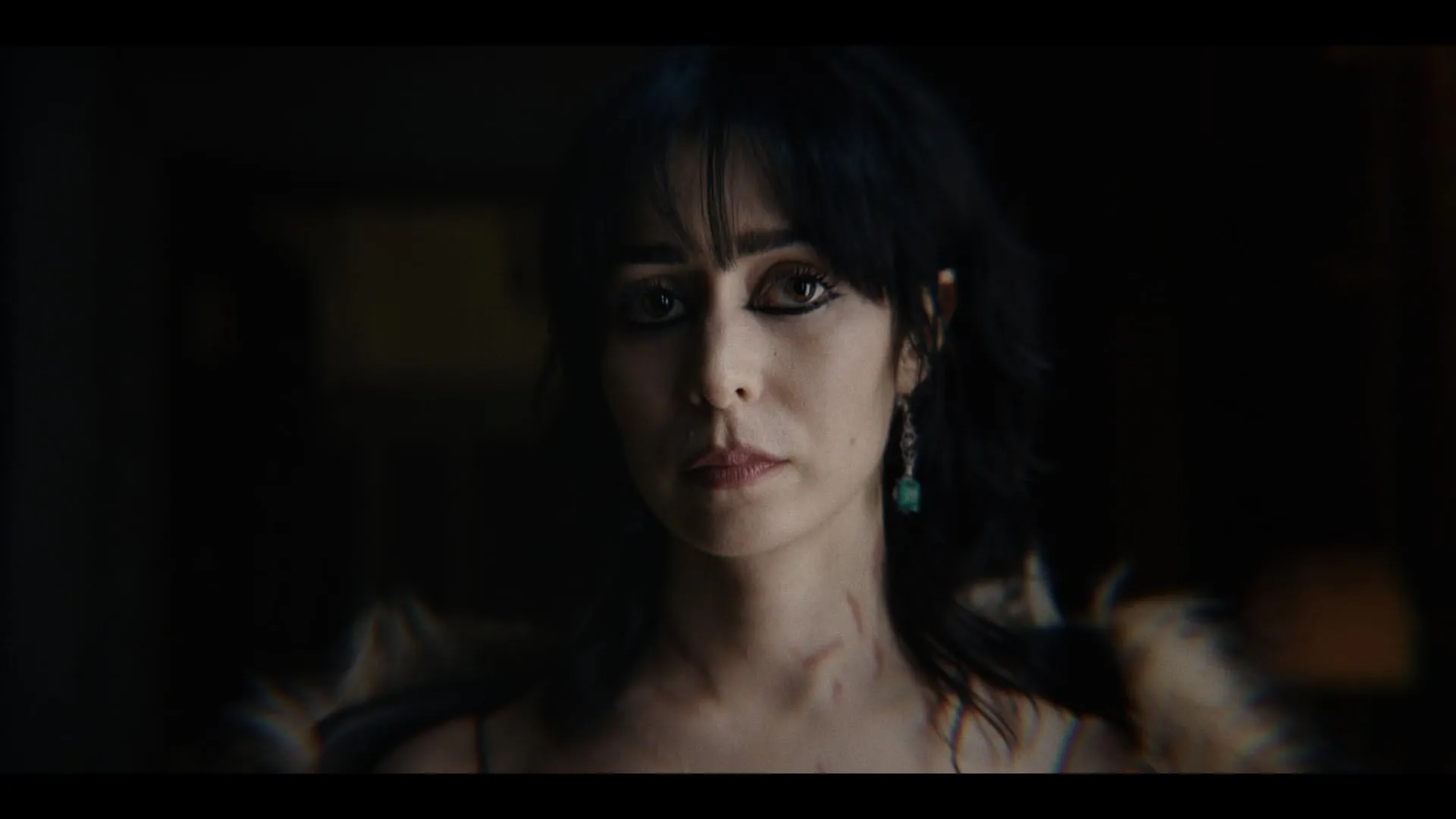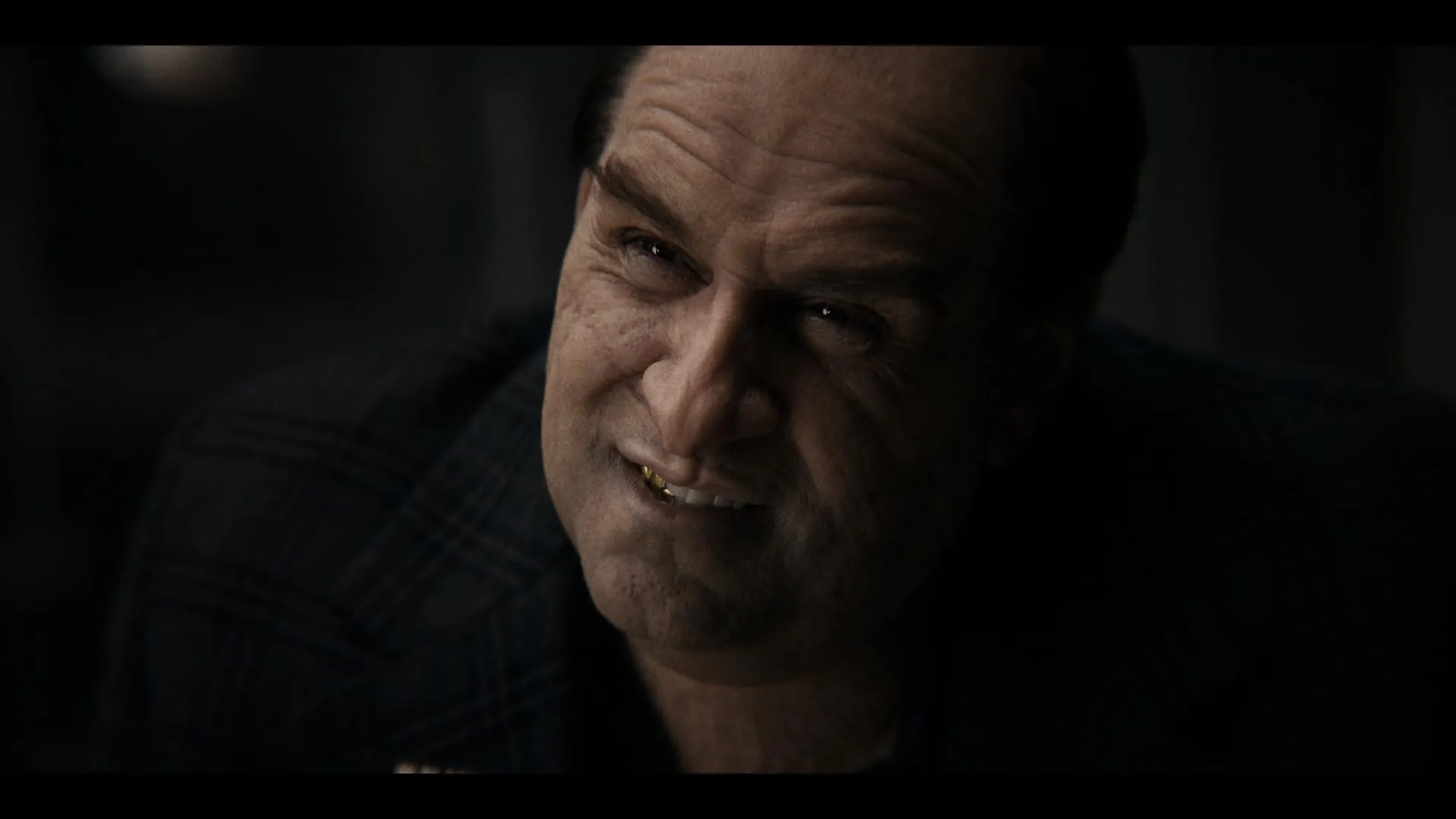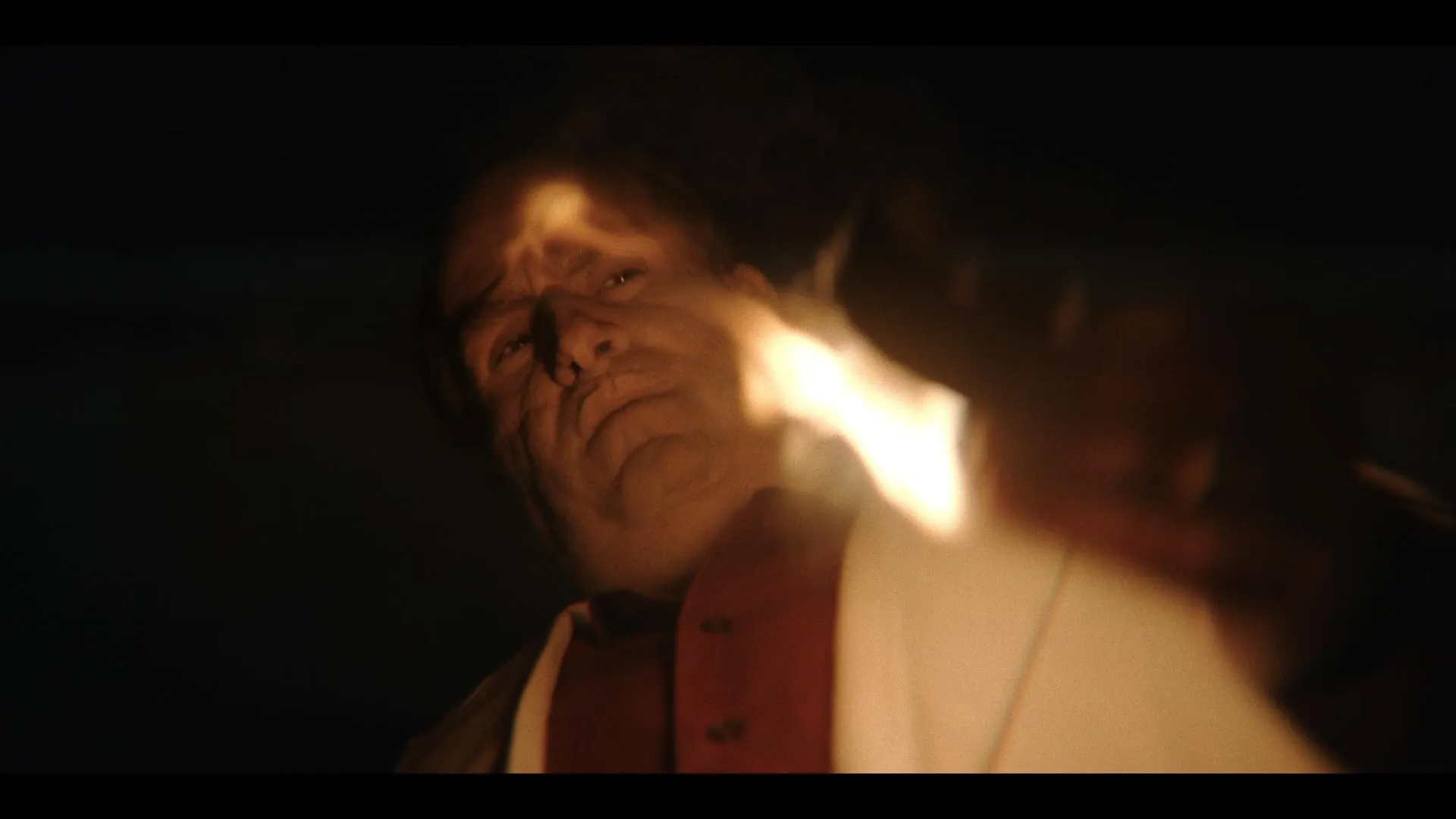In The Batman, Oswald Cobbs made quite an impression despite just a few scenes. Under all the incredible makeup was Colin Farrell’s surprisingly funny and memorable performance. This penguin clearly had potential for more. HBO’s The Penguin delivers on that, exploring Oswald’s backstory over eight episodes.
The series takes place a week after the events of The Batman. With the city flooded after the Riddler’s attack and his former boss Carmine Falcone now dead, Oswald sees an opportunity. Quickly devising a risky plan, he works to seize control of Gotham’s underworld while others try repairing the damage.
Oswald, known simply as Oz, faces challenges as he climbs the ranks. Those include a history with Sofia Falcone, Carmine’s daughter just released from Arkham, as well as a teenager named Victor, whom Oz initially intends to scare but ends up mentoring. The show reveals how society shapes people, for better or worse. Oz and Sofia emerge from very different environments yet develop similarly monstrous traits.
Across the season, Colin Farrell disappears into the role with unrecognizable makeup. Viewers witness Oz’s metamorphosis from disrespected mobster to would-be kingpin. This deeper exploration brings new layers to the Penguin and to Gotham itself in an intriguing character study of criminal minds and their warped perceptions of the world.
Oswald’s criminal climb
The series opens one week after the events of The Batman. Gotham is still reeling—Riddler’s floods left many neighborhoods in ruins. Carmine Falcone, who long ruled the underworld, has also met his end. Seeing instability, Oswald Cobbs hatches a plan to seize power.
Once dismissed as a low-level goon, Oswald believes this vacancy presents opportunity. Through cunning and violence, he aims to climb from bartender to boss. But challenging obstacles stand in his way.
Namely, the rival gangs of the Falcones and Sal Maroni refuse to yield their domains over drug trafficking so easily. They scramble to regain control. More personal is Oswald’s history with Sofia Falcone. Recently freed from Arkham, Carmine’s daughter proves a cunning adversary, with secrets of her own.
Into Oswald’s chaotic world also comes Victor, a teen left homeless by the floods. Though taking the boy under his wing, Oswald’s dark mentoring corrupts Victor’s good nature. Similarly, Oswald’s unstable relationship with his mother, Francis, breeds deeper instability.
Through it all, Oswald develops an unlikely bond with farm worker-turned-prostitute Eve. She provides rare moments of solace. Yet his hunger for power proves insatiable, plunging Gotham into a war that threatens to consume all in its path.
Across tight scripts, the season methodically builds its criminal empire intrigue until a final, violent clash. Subplots involving corruption, addiction, and Gotham’s oppressed work class add shadows to the underworld saga.
Unlikely Heroes, Intriguing Villains
At the heart of any great story are its characters, and The Penguin excels in bringing its complex leads to life. Colin Farrell disappears into the role of Oswald Cobbs so fully it’s remarkable. With 50 pounds of prosthetics concealing his usual charm, Farrell inhabits a new level of depravity.
Under Oz’s pockmarked skin lies a seething nest of insecurities. Bruised by a life of dismissals, he rages against a world refusing to recognize his potential. Farrell lingers in Oz’s most unvarnished glares and mangled smiles, laying bare a madness that consumes from within.
Yet hints of Farrell also shine through. Oz’s schemes stem from a mind that, however twisted, spins brilliantly. Even in villainy, we notice sparks of cunning and dark wit. Farrell ensures our appraisal of Oz remains complex, never settling on pure hatred.
Equally intricate is Cristina Milioti’s Sofia. Where Oz knows only scrapping, Sofia feels entitled to power. But Milioti plays depths below, hinting at secrets that fracture her icy facade. She draws us toward Sofia not just as a nemesis to Oz but as a psychological study in her own right.
Deirdre O’Connell also stands out as Ma Cobbs, trapping Oz within webs of toxic care. And Rhenzy Feliz brings heart to Victor, the one soul Oz refuses breaking. Their dynamic, like that of all characters, stems from writing that finds poetry within Gotham’s rot.
From makeup crafting Farrell into the series’ sole’star”to casting ensuring each role leaves marks, The Penguin summons performances that burrow and linger with viewers, continuing its characters’ stories long after closing credits. Focusing on minds instead of mayhem demonstrates why the best villains fascinate through their frighteningly human flaws.
Gotham’s Gloom
The Penguin immerses viewers in a world of shadows. Matt Reeves’ Gotham already felt like a grittier take, and the series delves deeper into noir. Cinematographer Darran Tiernan coats every scene in a bleak patina as if shot under perpetual overcast.
Through dimly lit alleyways and interiors lit by sickly lamp glow, Tiernan ensures we share Oswald’s discomfort. His prowling paths leave no place for solace. The crumbling architecture stands as much as a depiction of a city’s decay as its people.
Directors Craig Zobel and LeFranc maintain suspense with languid pacing. Some complain of a movie-like structure across episodic stories. But an emphasis on character allows their corruption to set in at a vile pace.
Meanwhile, the derivative qualities feel like an homage. Gotham’s criminal underbelly recalls classic mob tales. Scenes of compromised officials mirror white-collar criminality in shows like The Sopranos.
With each cast member guided towards depraved ends by twisted intentions, the series settles us in a seedy but sophisticated noir world. Glimpses of humor offer brevity, yet the discomfort lingers in echoes of real corruption within broken institutions. All told, the grim setting serves a story delving into darkness within human nature.
Mirrors of Society
The Penguin delves into more than just crime tales; it offers social commentary through its characters. Oswald and Sofia emerge as products of the systems that shaped them.
Oz knows only the street life that molded him. Despite ambition, his deformities and class condemn him to the fringes of an elitist Gotham. In Sofia, meanwhile, privilege nurtures narcissism and disconnect. Both feel entitled to power denied them.
Their battle underscores cyclical societal forces. From childhood, Oswald and Sofia behold how violence and corruption secure status. As adults, each perpetuates the brutality that formed their perceptions. Their fates mirror society’s tendency to propagate the injustices of previous generations.
With subtlety, the series also mirrors real hierarchies. Oswald maneuvers through manipulation much like some politicians, preying on disenfranchised loyalties while enriching himself alone.
For all his villainy, Oz retains some compassion—his need for family hints at our shared hopes beyond material success. While darkness prevails on screen, a glimmer of light remains in such poignant glimpses of our humanity.
At its heart, The Penguin exposes societal mirrors that – though grim – reflect truths people face worldwide as they struggle for stability, respect, and belonging within often unfair circumstances beyond their control.
Room for Improvement
No series is without flaws, and The Penguin has its share. Some characters feel short-changed by an impatient story that breezes by. We catch mere glimpses of potentially rich players like Sal Maroni before moving on.
Meanwhile, the decision to pack a multi-season narrative into a single condensed run leaves little chance to let any episode stand on its own. Viewers may struggle to recall individual chapters after the credits roll.
Pacing also brings problems. Stretched between movies, the limited series format leaves this story with obligations it sometimes struggles to balance. Key reveals unfold rushed, with scant room to breathe between twists.
And in rare instances, minor inconsistencies or gaps in logic surface. But such nitpicks feel petty placed against a broader tapestry; this complex demands we view with a wider lens.
In aiming to honor its characters with the weight they deserve, the scripts maybe took on more than one season could ideally support. Editing tighter may have solved such issues, sacrificing some seasoning for the sake of cohesion.
Yet these small quibbles hardly outweigh the boldness of a production that so fully commits, both aesthetically and thematically, to honoring its complex leads and the real societal mirrors they represent. Few entries in any genre attempt such an ambitious character study.
Deeper Than the Surface
Cast and crew shed their own identities to bring Oswald and Gotham to life. Farrell disappears into Oz through incredible prosthetics. Through him, we glimpse what drives someone to inflict harm despite humanity still lurking within.
Milioti too reveals Sofia’s monstrosity stems from complex places. As with Oz, the seeds of villainy arise not from pure evil but from distorted perspectives nurtured by neglect.
This introspective study compels discussion on societal failings that breed such strife. While not flawless, the series succeeds in making us understand, not just judge, even the most monstrous among us.
For fans wanting this world to expand beyond surface tales of good versus evil, The Penguin satisfy that urge to delve deeper. It transforms two-dimensional characters into multifaceted reflections of systemic dysfunction.
With such depth achieved, there exists potential to build upon these foundations, whether through Oz and Sofia or new inhabitants within Gotham’s shadows. For any viewers still longing for revelations beneath superficial heroes and villains, this series fulfills that desire admirably through a true dissection of criminal minds.
The Review
The Penguin
The Penguin delivers a gripping character study that elevates its concepts above formula. Though narrative flaws arise from ambitious scope, Farrell and Milioti inhabit their roles fully. Their performances, coupled with nuanced writing exposing society's role in shaping broken individuals, make this thriller a thought-provoking expansion of Gotham's atmosphere.
PROS
- Complex lead performances by Farrell and Milioti
- Nuanced writing exposing social influences on criminality
- Deep examination of its characters’ psychologies
- Grim aesthetic fully realizes gritty noir world
- leverage source material for broader commentary
CONS
- Slow pace across some episodes
- Rushed storytelling at times
- Supporting characters underutilized
- Plot repetitiveness in later episodes
- Overarching narrative could be tighter.








































